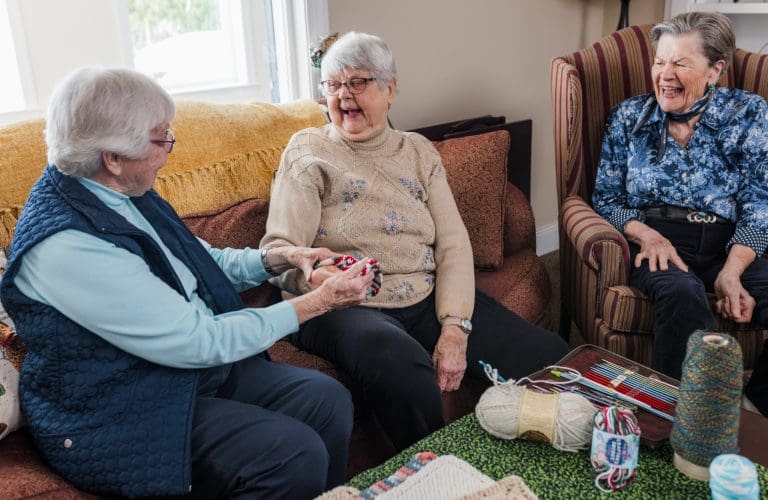The Difference Between Loneliness and Social Isolation

The Difference Between Loneliness and Social Isolation in Seniors
Why Socialization is Important in Assisted Living Communities and the Risks of Social Isolation for Seniors
Much like Alzheimer’s disease and dementia, social isolation and loneliness do not discriminate based on gender, age, or relationship status. However, one of the most susceptible populations to social isolation is seniors.
What is the Difference Between Loneliness and Social Isolation?
- Loneliness is a feeling with no measurable qualities—it focuses on how people perceive their current experience and whether they feel isolated.
- Social Isolation involves quantifiable measurements, such as the size of a social network, the frequency of social engagement, access to transportation, and the ability to connect with resources and information.
What Does It Mean to Be Socially Isolated?
We have an abundance of technologies available at our fingertips to keep us connected with friends and family across the country. So why is it that so many seniors experience social isolation despite having the ability to talk or even FaceTime with loved ones whenever they want?
Understanding the difference between loneliness and social isolation may provide insight into this question and shed light on the risks of social isolation for seniors.
Why Are Loneliness and Social Isolation Such Serious Problems for Seniors?
With advancements in modern medicine and technology, life expectancy has increased. While this brings many benefits, it also presents challenges related to social isolation in seniors. According to an article in the Chicago Tribune, the number of people aging alone is expected to grow to 1 in 4 of the 76 million baby boomers. A study by AARP featured in the article found that:
- 45% of seniors aged 65 and over are separated or widowed.
- 46% of women aged 65 and over live alone.
The study also examined transportation barriers and found that people are outliving their ability to drive—men by an average of six years and women by ten years. Losing the ability to drive not only diminishes independence but also creates additional obstacles to staying socially connected. Without transportation, maintaining relationships with friends, support groups, and family becomes increasingly difficult, further contributing to social isolation for seniors.
While loneliness is a subjective feeling influenced by one’s current situation, social isolation is often the result of multiple life events. Seniors with poor physical or mental health or those experiencing a major life change—such as retirement or the loss of a loved one—are more prone to social isolation. Additional contributing factors include a lack of opportunities to engage with and contribute to society and the inability to drive.
How Northbridge Communities Combat Social Isolation in Seniors
At Northbridge, we understand the importance of fostering social connections for our residents. Our programming is designed to encourage social interaction and engagement, helping to reduce the risks associated with social isolation in seniors. We offer a variety of activities, including:
- Intergenerational programs
- Art, baking, and woodworking
- Personalized opportunities to help residents find purpose and stay engaged
We recognize that seniors may feel disconnected from today’s fast-paced society, and we make it a priority to ensure everyone feels valued and included.
What Can You Do to Help Your Loved Ones?
- Get to know their neighbors and friends, fostering a sense of community.
- Encourage open communication so they feel comfortable sharing any changes in behavior or feelings of isolation.
- Explore available resources, such as adult day programs or assisted living, to provide them with opportunities for socialization and support.
No matter our age, social interaction is essential to overall well-being. By taking proactive steps, we can help seniors stay connected, engaged, and thriving.
If you are considering senior living as the right choice for yourself or a loved one, we invite you to Find a Northbridge Community near you to learn more. We look forward to getting to know you!